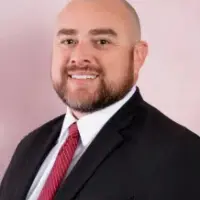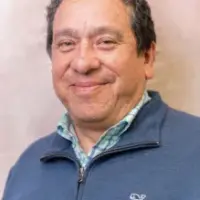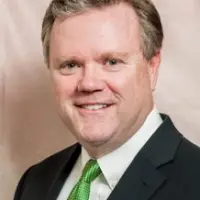About Gardner Family Care – Dual Diagnosis Program
Gardner Family Care – Dual Diagnosis Program in San Jose, California, is a trusted resource if you’re dealing with both substance use and mental health struggles. Their outpatient and intensive outpatient programs (IOPs) give you access to care without needing to stay overnight, which means more flexibility for your daily life. If you’re looking for structured detox and consistent support, their services make it possible to begin recovery with compassionate oversight.
Supervised Detox and IOP Services
What we notice right away about Gardner Family Care is the way they make detoxification possible in an outpatient setting without compromising safety. The intensive outpatient program includes multiple weekly sessions that cover therapy, family work, and skill building to help you stay on track. Their detox services are supervised, and withdrawal management is taken seriously so you’re not left to figure it out alone.
Support for Justice Involved Adults
If you’re involved in the justice system or receive TANF support, you can partake in services designed specifically for you. Therapy, mental health help, and addiction treatment are all part of what they offer to help reduce future risks and increase your stability. We like that they also include family services, so your support system can be involved too.
Things to Do Near the Facility
After your session, you can head over to nearby Kelley Park or walk through the Japanese Friendship Garden to clear your mind. If you need a quiet indoor space, the Dr. Martin Luther King Jr. Library is just a short drive away. Taking small breaks like these can be a helpful way to mentally settle after therapy.
Insurance, Access, and Diversity
Gardner Family Care accepts Medi-Cal, Medicare, and self pay options, which makes it more accessible than many places. All of their services are culturally competent and inclusive, with gender neutral restrooms and a commitment to treating everyone with dignity. If you’re seeking help for addiction and mental health together, this program offers a unique combination of structure, detox, and real world connection.
Latest Reviews
Rehab Score
Other Forms of Payment
Medicaid is a state based program that helps lower-income individuals and families pay for healthcare. Medicaid covers addiction treatment so those enrolled can use their coverage to pay for rehab. When a program accepts Medicaid the client often pays very little or nothing out of their own pocket.
Medicare is a federal program that provides health insurance for those 65 and older. It also serves people under 65 with chronic and disabling health challenges. To use Medicare for addiction treatment you need to find a program that accepts Medicare and is in network with your plan. Out of pocket costs and preauthorization requirements vary, so always check with your provider.
Addiction Treatments
Levels of Care
Outpatient Programs (OP) are for those seeking mental rehab or drug rehab, but who also stay at home every night. The main difference between outpatient treatment (OP) and intensive outpatient treatment (IOP) lies in the amount of hours the patient spends at the facility. Most of the time an outpatient program is designed for someone who has completed an inpatient stay and is looking to continue their growth in recovery. Outpatient is not meant to be the starting point, it is commonly referred to as aftercare.
Intensive Outpatient Programs (IOP) are for those who want or need a very structured treatment program but who also wish to live at home and continue with certain responsibilities (such as work or school). IOP substance abuse treatment programs vary in duration and intensity, and certain outpatient rehab centers will offer individualized treatment programs.
Treatments
The goal of treatment for alcoholism is abstinence. Those with poor social support, poor motivation, or psychiatric disorders tend to relapse within a few years of treatment. For these people, success is measured by longer periods of abstinence, reduced use of alcohol, better health, and improved social functioning. Recovery and Maintenance are usually based on 12 step programs and AA meetings.
Drug rehab in California teaches participants constructive ways to stay clean and sober. Treatment revolves around helping individuals stop using the substance they are addicted to and learn healthy habits to avoid relapse.
Many of those suffering from addiction also suffer from mental or emotional illnesses like schizophrenia, bipolar disorder, depression, or anxiety disorders. Rehab and other substance abuse facilities treating those with a dual diagnosis or co-occurring disorder administer psychiatric treatment to address the person's mental health issue in addition to drug and alcohol rehabilitation.
Opioid rehabs specialize in supporting those recovering from opioid addiction. They treat those suffering from addiction to illegal opioids like heroin, as well as prescription drugs like oxycodone. These centers typically combine both physical as well as mental and emotional support to help stop addiction. Physical support often includes medical detox and subsequent medical support (including medication), and mental support includes in-depth therapy to address the underlying causes of addiction.
Substance rehabs focus on helping individuals recover from substance abuse, including alcohol and drug addiction (both illegal and prescription drugs). They often include the opportunity to engage in both individual as well as group therapy.
Programs
Adult rehab programs include therapies tailored to each client's specific needs, goals, and recovery progress. They are tailored to the specific challenges adult clients may face, including family and work pressures and commitments. From inpatient and residential treatment to various levels of outpatient services, there are many options available. Some facilities also help adults work through co-occurring conditions, like anxiety, that can accompany addiction.
Young adulthood can be an exciting, yet difficult, time of transition. Individuals in their late teens to mid-20s face unique stressors related to school, jobs, families, and social circles, which can lead to a rise in substance use. Rehab centers with dedicated young adult programs will include activities and amenities that cater to this age group, with an emphasis on specialized counseling, peer socialization, and ongoing aftercare.
Clinical Services
Research clearly demonstrates that recovery is far more successful and sustainable when loved ones like family members participate in rehab and substance abuse treatment. Genetic factors may be at play when it comes to drug and alcohol addiction, as well as mental health issues. Family dynamics often play a critical role in addiction triggers, and if properly educated, family members can be a strong source of support when it comes to rehabilitation.
Group therapy is any therapeutic work that happens in a group (not one-on-one). There are a number of different group therapy modalities, including support groups, experiential therapy, psycho-education, and more. Group therapy involves treatment as well as processing interaction between group members.
Trauma therapy addresses traumatic incidents from a client's past that are likely affecting their present-day experience. Trauma is often one of the primary triggers and potential causes of addiction, and can stem from child sexual abuse, domestic violence, having a parent with a mental illness, losing one or both parents at a young age, teenage or adult sexual assault, or any number of other factors. The purpose of trauma therapy is to allow a patient to process trauma and move through and past it, with the help of trained and compassionate mental health professionals.
Staff

Rafael Vaquerano
President & CEO

Corina B Clark
Chief Operating Officer

Guillermo Viveros
Chief Financial Officer

Ranjani Chandramouli, MD
Chief Medical Officer

Michael McCarthy
Chief People Officer
Contact Information
160 East Virginia street
Suite 280
San Jose, CA 95112